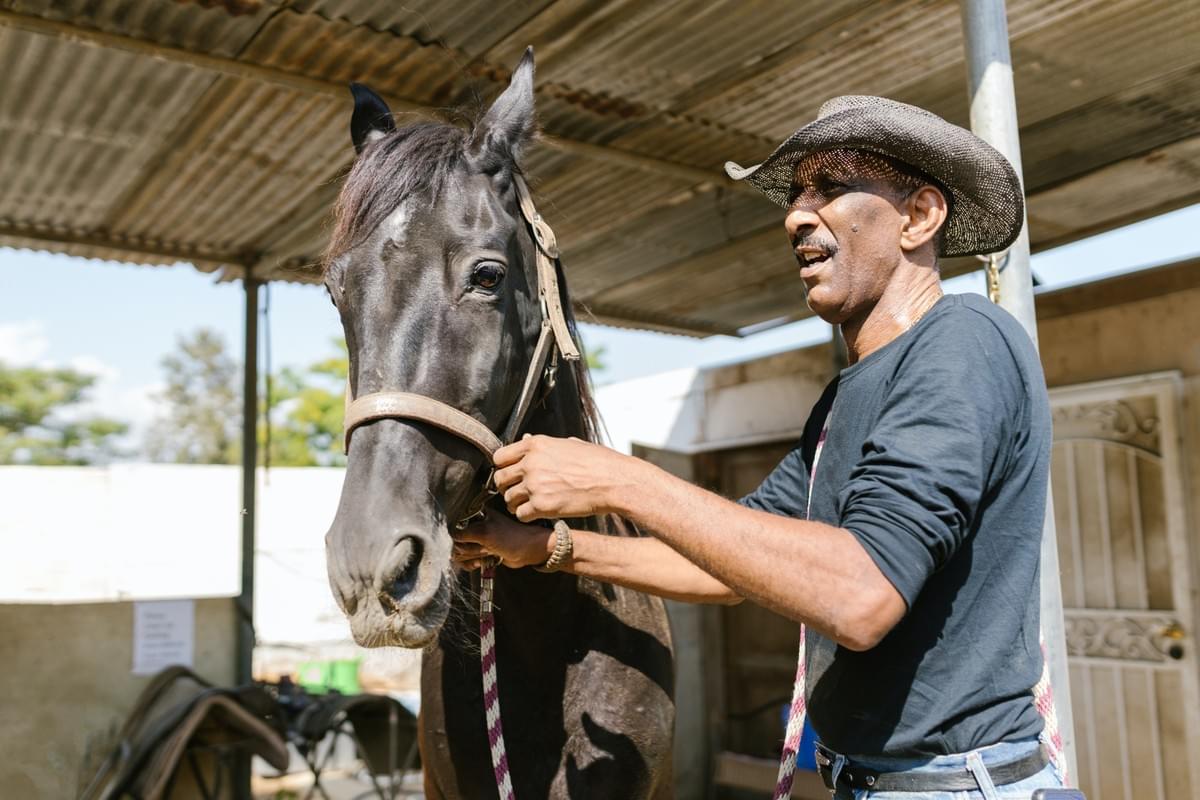
Horse training refers to various practices which teach horses how to behave properly when commanded to do so by human beings. Horses are typically trained for simple daily care such as horse riding for recreation and for equestrian pursuits in addition to for professional horseback riding in order to provide a safe and comfortable ride for humans. In some cases, horses are also trained to race. Although these animals may be trained for a variety of purposes, one of the most popular reasons for which horses are used in the sport of horseback riding is as a means of exercise. Horseback riding offers many health benefits including cardiovascular conditioning, muscle strengthening and flexibility and is an activity that nearly everyone enjoys.
Horse training involves teaching the horse the right way to move and the wrong way to move. This involves teaching the horse to move both forwards and backwards on its hind legs while staying on balance and appearing graceful. As a result, horse trainers must carefully watch the horse's behavior in order to ensure that it will remain properly behaved. They should also take into consideration how it reacts to stressful situations. Training sessions should be conducted with the supervision of a veterinarian or other qualified professional. It should also be supervised by a skilled horse trainer.
A good horse course routine will make sure that the horse learns how to go about its daily business while being mentally and physically fit at the same time. Horse trainers who choose to participate in long distance longeing competitions should invest in quality equipment such as jumpers, lead ropes, and halter neck longeing suits in order to prevent their horses from becoming fatigued during the lengthy activity. The horse's diet should consist of a high-fiber diet in order to maintain proper digestive and circulatory functions, which are important aspects of longeing.
Another way that horse trainers can improve their horse training results is by identifying and addressing any problems that may be causing a horse to lose interest in the training process. It is common for horses to become bored when they do not have a specific physical challenge that they are pursuing. For example, stallions may not be used to being walked in a stall. This can cause them to lose interest in the entire exercise process, causing them to become slack and fearful. A horse trainer should make sure that he or she provides the necessary horsemanship challenges that will keep the horse engaged and working efficiently during training. Horses also do some post training. Click here for pole work exercises for horses.
Another important factor in horse training is horsemanship. English riding is a very popular form of horsemanship, which requires the horse to follow the lead of the rider. During training, a horse can benefit a great deal from learning proper english riding posture and etiquette. These lessons can teach the horse to be confident in its ability to control the reins, making it safer for the rider as well. Many horses that enter horse shows begin life as equine trials. In order to achieve a high performance in these events, it is crucial to get the horse to learn how to ride according to the rules of the class it is competing in.Find out more details in relation to this topic here: https://en.wikipedia.org/wiki/Horse_trainer .
Horse training is a fun activity for people of all ages, but it does require some dedication. If you are serious about wanting to compete in western pony or show equine competitions, it is essential to become a qualified trainer before attempting to compete. It is also wise to choose a course that will give you the experience and knowledge you need to compete.
